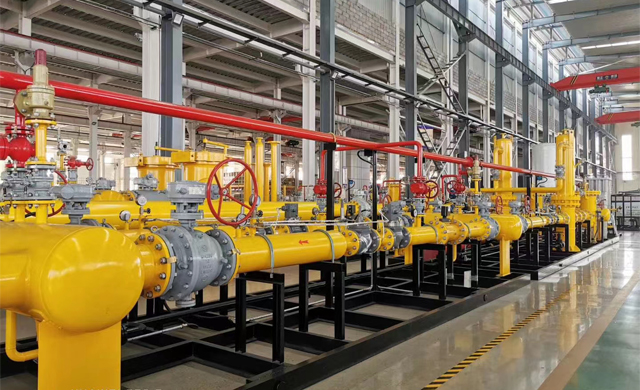
Dec . 11, 2024 11:25
Back to list
gas filter
Understanding Gas Filters Their Importance and Functionality
In various industrial and environmental applications, the need for effective air and gas purification has become increasingly critical. One of the key technologies employed to achieve this is the gas filter. Gas filters are designed to remove particulates, gases, and other contaminants from air or other gas streams, making them crucial in protecting both human health and the environment.
What is a Gas Filter?
A gas filter is a device that helps to eliminate impurities from gases. It typically consists of a medium through which gas flows, allowing for the separation of undesirable components from the clean gas. Gas filters can be used in a variety of settings, including industrial processes, laboratory environments, and even residential applications. Their composition can vary widely, with some filters using mechanical barriers, while others may employ chemical reactions to capture or neutralize harmful substances.
Types of Gas Filters
There are several types of gas filters, each serving different functions and suited to various applications
.1. HEPA Filters High-Efficiency Particulate Air (HEPA) filters are designed to capture a high percentage of dust particles and allergens, making them suitable for air purification in hospitals, laboratories, and homes. They can filter out particles as small as 0.3 microns with an efficiency of 99.97%.
2. Activated Carbon Filters These filters are excellent for removing volatile organic compounds (VOCs), odors, and some gases. The porous structure of activated carbon adsorbs harmful substances, making it widely used in air and water purification systems.
3. Chemical Absorption Filters These filters use specific chemical reactions to remove gases, such as acidic or alkaline substances. They are commonly utilized in industries where exhaust gases must be treated to meet environmental regulations.
gas filter

4. Electrostatic Precipitators These devices charge particles in the gas stream and collect them on oppositely charged surfaces. This technology is particularly effective in industries such as coal-fired power plants, where large volumes of particulate matter are generated.
The Importance of Gas Filters
The significance of gas filters cannot be overstated. With the increasing levels of air pollution and the rising awareness of environmental issues, gas filtration systems serve several critical purposes
- Health Protection Gas filters play an essential role in safeguarding public health by removing harmful pollutants and particulates from the air we breathe. In industrial settings, exposure to contaminated air can lead to serious health issues, including respiratory diseases and long-term illnesses.
- Environmental Compliance Many industries are subject to stringent regulations regarding air quality and emissions. Gas filters help companies meet these regulations by treating exhaust gases before they are released into the atmosphere, thereby reducing their environmental footprint.
- Equipment Longevity By filtering out particulates and corrosive gases, these systems help protect machinery and equipment from damage. This results in lower maintenance costs and increased operational efficiency.
- Enhanced Product Quality In manufacturing processes, the presence of contaminants can affect product quality. Utilizing gas filters ensures that products meet the required specifications and standards.
Conclusion
Gas filters are indispensable tools in maintaining air quality and protecting both human health and the environment. From industrial applications to household setups, the various types of gas filters offer specialized solutions for dealing with contaminants. As the world continues to grapple with pollution and its effects, the development and implementation of advanced gas filtration technologies will remain a priority. By investing in efficient gas filtration systems, we take significant steps toward a cleaner, healthier future, ensuring that we can breathe easier knowing that our air is safer for ourselves and generations to come.
Next:
Latest news
-
Safety Valve Spring-Loaded Design Overpressure ProtectionNewsJul.25,2025
-
Precision Voltage Regulator AC5 Accuracy Grade PerformanceNewsJul.25,2025
-
Natural Gas Pressure Regulating Skid Industrial Pipeline ApplicationsNewsJul.25,2025
-
Natural Gas Filter Stainless Steel Mesh Element DesignNewsJul.25,2025
-
Gas Pressure Regulator Valve Direct-Acting Spring-Loaded DesignNewsJul.25,2025
-
Decompression Equipment Multi-Stage Heat Exchange System DesignNewsJul.25,2025

